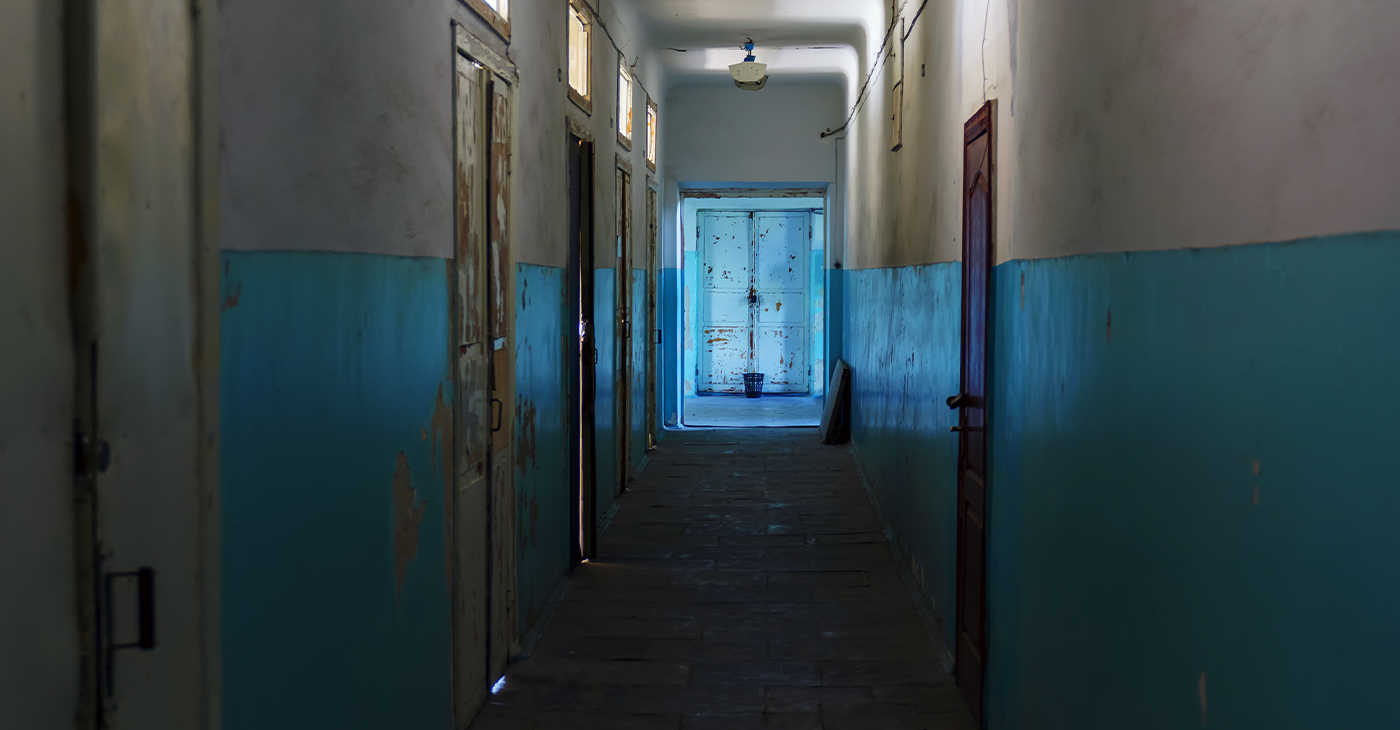By Ana B. Ibarra
CalMatters
Five months after declaring a fiscal emergency and predicting that they’d run out of funds by early this year, officials at San Benito County’s only hospital said they have secured enough cash to get through the summer. At least for now, residents there won’t lose their local hospital.
But a short-term infusion of cash only buys Hazel Hawkins Memorial Hospital a little time. The end goal, hospital administrators say, is to find a buyer that will take over and not only keep the hospital solvent but, ideally, expand services in the area.
Hazel Hawkins, in Hollister, is one of a handful of hospitals statewide facing financial troubles. While some of these hospitals have encountered financial difficulties in the past, the closure of Madera Community Hospital, which shut down completely at the start of this year and filed for bankruptcy in March, has prompted a new cry for help. Now a group of legislators are brainstorming ways to support struggling hospitals and keep them from shutting down or cutting services.
Legislative proposals on the table include a bill that would offer emergency loans for hospitals facing closure or those trying to reopen. A second bill involves Medi-Cal, the health insurance program for low-income people. It proposes funneling more money to hospitals by boosting Medi-Cal payments to providers by reinstating a tax on health insurance plans.
In California, six rural hospitals are at heightened risk of closing, according to the Center for Healthcare Quality and Payment Reform. The center does not release the names of at-risk hospitals because a hospital’s situation can change quicker than data may reflect, said Harold Miller, the center’s president. The California Hospital Association said a few hospitals in metro areas are also struggling, but the organization has not publicly named every hospital it deems at risk, noting that when a hospital announces its perilous financial situation it can prematurely begin to lose workers and patients.
Among hospitals that have publicly talked about their troubles or attributed reductions in services and staff to their finances: Hazel Hawkins and Mad River Community Hospital in Arcata have both suspended their home health services programs; Kaweah Health Medical Center in Visalia has laid off at least 130 employees; El Centro Regional Medical Center in Imperial County cut its maternity ward, forcing local families to travel about 25 minutes to the only other hospital in the county.
Most recently, in mid-March, Beverly Hospital, a 202-bed hospital in Montebello, said that in June it will suspend its maternity, pediatric and outpatient radiology services. In a January letter to the state attorney general, the hospital noted its “dire financial circumstances” and said it would be canceling its plans to affiliate with the health care system Adventist Health because “Beverly Hospital does not have the resources to remain operational during the pendency of the attorney general review.” Under state law, the attorney general must approve the sale of nonprofit hospitals.
The California Hospital Association is asking for $1.5 billion from the state for struggling hospitals, and its request is being supported by a bipartisan group of lawmakers. But even supporters acknowledge this is a challenging request when the state is projecting a budget deficit.
Health economists interviewed by CalMatters said state help should be targeted so that any financial aid goes to hospitals in actual need.
“Most of the hospitals in California are in big systems and those systems have financial resources to get their members through. But there are a few that genuinely appear to be at risk if this cost surge continues,” said Glenn Melnick, a health economist at the University of Southern California. “The question is: Does the government want to have a facility that could get them (hospitals) through this rough patch? What you don’t want is to hand out a billion and half dollars to hospitals that may not need it.”
Providing aid to hospitals in trouble is warranted and different from helping other types of businesses because the goal is to protect patients, said Chris Whaley, a health economist with RAND Corp., a think tank.
“When businesses go out of business, even if it is no fault of their own, we accept that as part of capitalism, but in health care, if a hospital goes out of business that usually means a vulnerable patient population has lost access to care,” he said.
Saving Hollister’s hospital
Hospitals have largely blamed the pandemic for their financial troubles. They’re still recovering from increased expenses related to labor, drugs, and medical supplies needed to respond to COVID-19. Struggling hospitals that have spoken about their circumstances have a couple of common threads: They are independent, meaning they don’t have the financial backing of a well-endowed health system, and at least a third of their patients are low-income and insured through Medi-Cal.
Some hospitals face additional pressures. For example, despite its increased expenses, Hazel Hawkins, a 25-bed hospital, posted earnings of $2.6 million in the fiscal year that ended in June of 2022, according to state financial documents. Then in July it learned that it was being overpaid by Medicare, the federal insurance program for seniors and people with disabilities, said Mary Casillas, Hazel Hawkins’ interim CEO. The hospital is now on the hook to repay more than $5 million to Medicare. That’s on top of a 20% decrease in its adjusted Medicare reimbursement, she said. By December, employees had received notices of a potential closure.
Earlier this year, the hospital secured a $3 million state loan, received an advancement in property tax dollars it receives from the county and has been working to reduce its operational costs. That, among other efforts, will help the hospital stay afloat at least until September and give it time to find a buyer, Casillas said. She said her hospital has been approached by at least 10 interested parties that are currently reviewing Hazel Hawkins’ situation.
“We have bankruptcy professionals, as well as financial advisors, who have been very helpful at helping us manage our cash flow,” Casillas said.
Legislators’ proposals
Assemblymember Esmeralda Soria, a Fresno Democrat whose district includes Madera and who is authoring legislation, said keeping hospitals open is not optional — people should have emergency care close to home.
“I think this issue is really important as the state continues to pursue expansion of coverage. This is a reminder that folks in my area may qualify for Medi-Cal, but what does that mean if they can’t access care?” Soria said.
Soria is authoring Assembly Bill 412, the legislation that would create an emergency loan program specifically for hospitals that are facing closure or that have closed but have a plan to reopen. Currently, state loans are only available to operating public hospitals, but Soria wants to create an option that would aid the reopening of Madera Community Hospital. In the case of a closed facility, the loan would be made to a government entity looking to reopen its local hospital.
The legislation would require a budget allocation of $20 million, which would be added to funds already available through the state treasurer’s office. These additional loans would likely be a very small part of the puzzle. In Madera, county officials have estimated that it would cost about $55 million to reopen the hospital.
Long term, legislators are eyeing more ambitious ideas. For example, Soria said an ideal scenario would be for the University of California system to take over the defunct Madera hospital. The UC could run a medical residency program there, which would help attract more providers to the San Joaquin Valley.
“We’ve approached UC Merced,” Soria said, noting that those conversations are very new. “Is it a possibility to dream big and have the UC take it over? I think there are opportunities like this, and we have to think outside the box.”
Meanwhile, Sen. Anna Caballero, a Merced Democrat, has introduced Senate Bill 870, which calls for the state to renew a tax on managed care organizations that expired last year, and use some of those funds to increase payments to hospitals and other providers. Higher payment could provide some relief to hospitals that serve a large low-income patient population, Caballero said.
Medi-Cal rates, providers argue, have not kept up with growing costs. The California Hospital Association estimates the state pays hospitals 74 cents for every dollar spent on a Medi-Cal patient. Experts point out that hospitals also receive “supplemental payments,” which include payments to hospitals that serve a disproportionate share of Medi-Cal patients and compensation for care provided to uninsured people. In 2021, California hospitals altogether received about $9.2 billion in these supplemental payments, according to the Medicaid and Children’s Health Insurance Program Payment and Access Commission.
In an email, the hospital association said supplemental payments do not make up for the shortfalls in base pay. “The structural funding problem is the result of base payment rates that haven’t increased in over a decade, despite massive inflationary growth,” said David Simon, a spokesperson for the association.
Gov. Gavin Newsom also called for the reinstatement of the tax on managed care organizations in his January budget draft. His proposal points more toward sustainability and offsetting any potential cuts in Medi-Cal, rather than expanding service levels and provider payments. Typically, revenue from that tax allows the state to save general fund spending on Medi-Cal. If reinstated, revenue from this tax could save the state’s general fund up to $2 billion a year, according to the Legislative Analyst’s Office.
Caballero said that providing aid to hospitals should come with some scrutiny. Part of what legislators are working on in these proposals is the criteria hospitals will have to meet in order to be eligible for state resources, she said. One idea is to send a team of experts that analyzes each hospital’s situation, and if part of the problem is mismanagement, then there would have to be changes in the hospital’s leadership as a condition to receive help, she said.
The Republican Senate caucus, led by Sen. Brian Jones, a San Diego Republican, is taking a different approach and pegging its legislation, Senate Bill 774, to the state attorney general’s authority over hospital transactions. By state law, the attorney general has to review and approve mergers that include a nonprofit hospital as a way to examine a buyer’s market power and ensure protections for patients.
Trinity Health, a nonprofit Catholic health care system, was set to purchase Madera Community Hospital but pulled out of the deal, blaming conditions imposed by Attorney General Rob Bonta. Jones’ bill seeks to prohibit the attorney general from requiring certain conditions, like restricting the buyer from negotiating new contracts and rates with payers.
Assembly Bill 869, by Assemblymember Jim Wood, a Democrat from Healdsburg, would benefit small and rural hospitals by providing relief in a different way. This bill would provide grants for seismic retrofitting to financially distressed hospitals and allow them more time to meet the state’s 2030 seismic standards. The requirements, which have been delayed in the past, have been a point of contention. State law requires that hospitals upgrade their buildings so that they are functional after an earthquake, but hospital leaders say they can’t afford the expensive upgrades, especially in their current financial situation.
“The bill is a targeted approach to preserve a small number of hospitals that are most often a community’s only access to emergency care,” Wood said during a recent Assembly Health Committee hearing, “and will certainly close if some relief is not provided.”



 #NNPA BlackPress4 weeks ago
#NNPA BlackPress4 weeks ago
 #NNPA BlackPress4 weeks ago
#NNPA BlackPress4 weeks ago
 #NNPA BlackPress4 weeks ago
#NNPA BlackPress4 weeks ago
 Activism2 weeks ago
Activism2 weeks ago
 Activism3 weeks ago
Activism3 weeks ago
 Activism2 weeks ago
Activism2 weeks ago
 Activism2 weeks ago
Activism2 weeks ago


























































